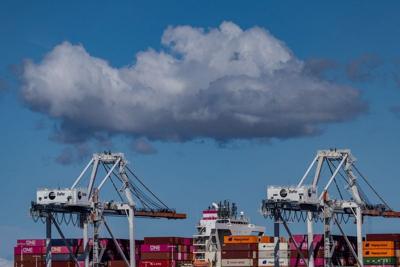In a significant move poised to reshape international commerce, President Donald Trump has signed an executive order to suspend the long-standing “de minimis” exemption, which previously allowed low-value commercial shipments to enter the United States without incurring tariffs. This decisive action, effective August 29, aims to address national emergencies and bolster American businesses, according to statements from the White House.
The de minimis rule previously permitted goods valued at or under $800 to be imported duty-free, a provision that has seen a dramatic increase in utilization over recent years. Under the new directive, packages shipped to the U.S. outside of the international postal network will now be subject to “all applicable duties,” marking a substantial shift in import regulations for a vast array of consumer goods.
This executive order accelerates the suspension of the de minimis exemption, moving more quickly than the timeline outlined in the One Big Beautiful Bill Act (OBBBA), which had already repealed the legal basis for the exemption worldwide starting in July 2027. The Trump administration emphasized the urgency of this measure in dealing with current economic challenges and safeguarding domestic industries.
Notably, this isn’t President Trump’s first intervention concerning these low-value shipments. He had previously targeted packages originating from China and Hong Kong. The current, broader suspension reflects an escalated effort to rebalance trade flows and potentially curb the influx of inexpensive foreign goods.
For shipments continuing to utilize the postal system, new tariff structures will be imposed. These packages will either face an “ad valorem duty,” calculated as the effective tariff rate of the package’s country of origin, or for a period of six months, a specific tariff ranging from $80 to $200, contingent on the country of origin’s existing tariff rate.
The sheer volume of de minimis shipments underscores the scale of this policy change. Data reveals an exponential increase, from 134 million shipments annually in 2015 to over 1.36 billion in 2024. U.S. Customs and Border Protection currently processes more than 4 million such shipments every single day, highlighting the administrative and economic implications of the former exemption.
Recent trends already indicate the immediate impact of earlier, targeted measures. Reuters reported a 10.7% decline in air cargo shipment volume from Asia since the U.S. initially canceled the tax-free exemption for low-value packages from China in early May. This initial move saw tariffs as high as 145% before settling to around 30% after subsequent trade negotiations.
Low-value e-commerce from Asia has become a dominant force in global air freight, significantly boosting airline cargo businesses. Last year, such shipments accounted for an astounding 55% of goods shipped from China to the U.S. by air, a stark contrast to just 5% in 2018, largely driven by platforms like Shein and PDD’s Temu. This new order signals a potential shift in the global supply chain landscape and consumer purchasing habits.






Leave a Reply